The London Joomla user group meeting took place on 21 October 2014. I went along and this is my report.
The London meetup takes place every month on the 3rd Tuesday. More details can be found at the user group’s dedicated website at http://www.joomlalondon.co.uk/
The meeting started with general news on Joomla.
We were reminded that several security fixes have been released recently and these should be applied by website administrators as soon as possible.
One of the meeting regulars, Hugh, is a JED maintainer (the JED is the Joomla Extension Directory and is where you’ll find all the possible extensions, plugins and components to Joomla). Hugh reported that there is a new version of the JED imminent. However unlike the last overhaul, extensions will not need to be resubmitted.
Our discussion then moved onto some general tips for Joomla developers.
A useful tip for developers was that right-clicking and viewing source in Firefox/Chrome will highlight in red any unclosed tags.
We learned that Chrome’s developer mode has an option for viewing a site as if it was on a mobile device, along with connection speeds. However some users said it wasn’t very accurate.
Phil and Joe from SoftForge demonstrated the useful ability to set breakpoints in code within Chrome, which is a useful technique for debugging Javascript – and extremely helpful if using AJAX.
Hugh gave us a useful demo of a recently built site for a client and demonstrated some beautiful design techniques.
We then listened to two talks which had been given at the recent Joomla Day event.

Workflows with Joomla and Administrator Shortcuts. Both presented by Hugh. Hugh’s company can be found at http://www.webappz.co.uk/
Workflows with Joomla
Hugh presented a walkthrough of creating a workflow using off-the-shelf Joomla components. The example given was a website that offers loan applications.
The workflow given was for a customer to apply for a loan and then the various steps of processing the application being setup and viewable.
The technique used was using User Groups to keep track of the different stages. Menu items are given permission such that they are only visible to specific user groups, and the user is moved from group to group as they progress through the process.
The first stage, where the user submitted the form required some custom PHP code to change the usergroup for the user, and to refresh the session so that the user immediately saw the updated menu.
Administrator Shortcuts
Too many to mention but a few highlights for me:
- Parameters can be added to a menu link
- User redirects on login
- Language overrides can be used to include variables
- Article Editor can be customised per user – very useful if giving to a non-skilled user
- Removing Unused CSS Selectors from a Website – the Dust-me browser plugin http://www.brothercake.com/dustmeselectors/
- What software is that website running – another browser plugin: https://wappalyzer.com/
- Making notes/messages appear in Admin – this is done within the Module Manager.
- Create a “Standard” install if you regularly build sites by using Akeebabackup.
For the final part of the meeting we talked about our favourite extensions and more Joomla news.
A particlualry useful extension which most of us had not heard about was Kazaam – an automatic menu manager. Whenever a new article is created, this plugin will create a menu item for it.
This is a plugin that creates a menu, and automatically maintains it. You can see the menu in your Joomla menu manager, and use it exactly like any other menu. It is a tree menu, and it maintains your category and article tree structure perfectly in your new menu.
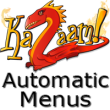 Of particular interest to me, was the revelation that Joomla is so dependent on menus that if you create articles that aren’t linked in menus (I tend to link only the top level of a site to the main menu, and then link within articles to other articles), Joomla really doesn’t like this and you will see in the url that it’s created a baffling structure of sub-categories. If however every article belongs in a menu, then this does not happen and you can control your url structure. The menu does not need to be shown – it can be inactive.
Of particular interest to me, was the revelation that Joomla is so dependent on menus that if you create articles that aren’t linked in menus (I tend to link only the top level of a site to the main menu, and then link within articles to other articles), Joomla really doesn’t like this and you will see in the url that it’s created a baffling structure of sub-categories. If however every article belongs in a menu, then this does not happen and you can control your url structure. The menu does not need to be shown – it can be inactive.
Finally, Joomla 2.5 LTS is coming to end of life in December 2014. This means the Joomla team will no longer be providing security and other updates to it. The LTS stands for Long Term Support, and there will be a version of Joomla 3 that will become the new LTS version in due course. The new mechanism for this is that Joomla 3.x will continue with regular releases until Joomla 4 comes along. At that point, the final released version of Joomla 3.x will become the LTS version.
If you’d like to know more about Joomla, need help with your website, or would like to see the services 2020Media offers for Joomla, please see: http://www.2020media.com/shared-hosting/joomla-hosting

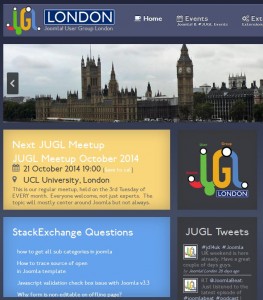

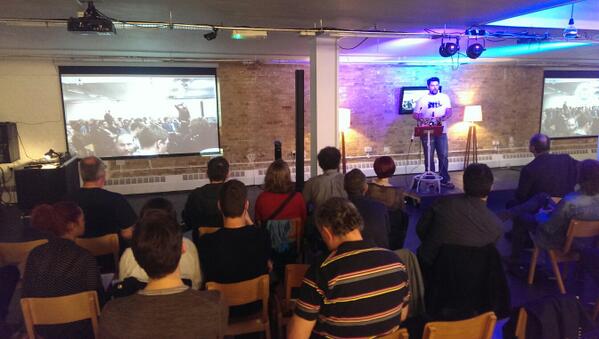


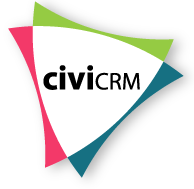
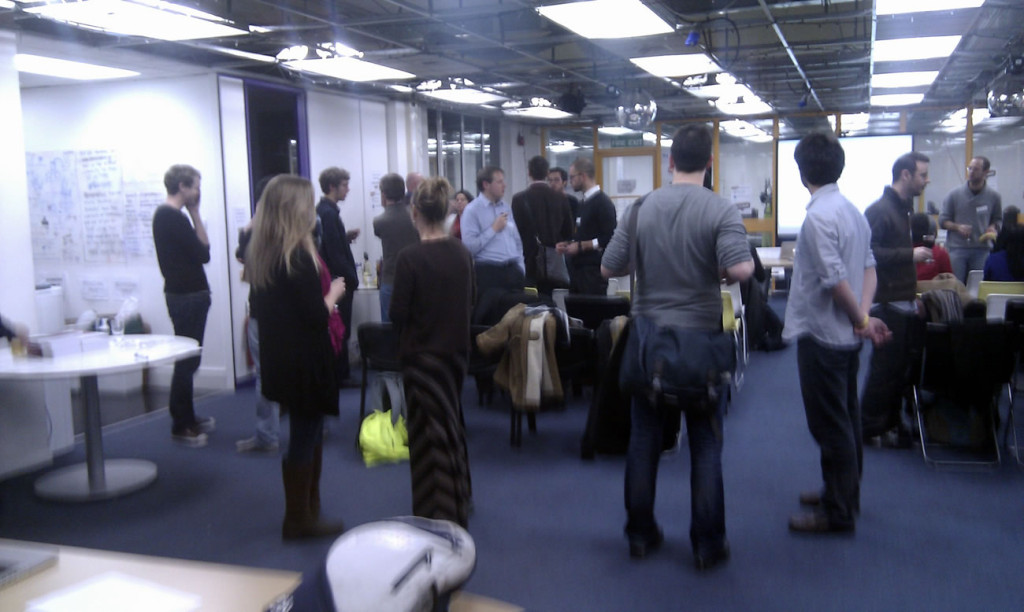
 A quick roundup of the last London Joomla User group meeting, which took place on Tuesday 16 April 2013.
A quick roundup of the last London Joomla User group meeting, which took place on Tuesday 16 April 2013.